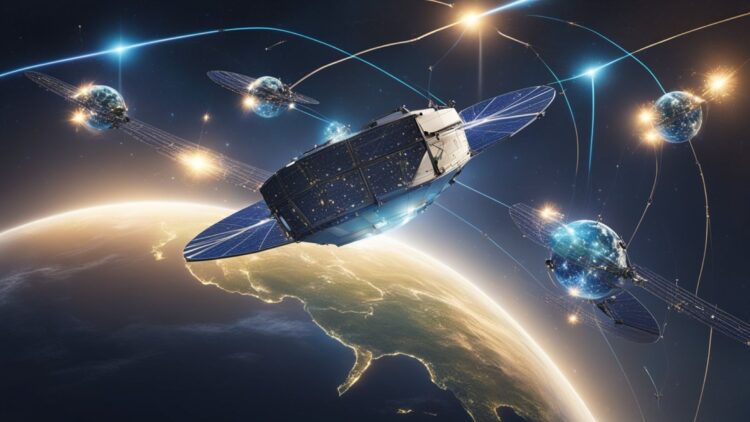SpaceX’s billionaire founder Elon Musk has sent up yet another group of satellites into low-Earth orbit with his ultimate goal to dominate global communication. On November 26, 2024, SpaceX in Florida’s Kennedy Space Center is scheduled to launch 24 Starlink satellites using a Falcon 9 rocket.
This was a significant step in Musk’s mission to change the world’s internet connections and continuously build on his aim for world domination. However, what is this launch, and how does it fit into Musk’s overall strategy?
How the Starlink mega constellation will reshape global connectivity in the future
The recent launch contributed to forming the Starlink mega constellation that currently forms one of the largest satellite networks known to mankind. With roughly 6,700 active satellites in orbit, the network aims to deliver internet connectivity to unserved and hard-to-reach communities globally.
Musk’s vision is to build an Internet worldwide to serve clients in rural, developing, and disaster areas where broadband services are rare or non-existent. However, the extent of this new satellite network size makes people wonder whether Musk has a hidden agenda.
The number of satellites launched and the frequency at which SpaceX is growing its constellation indicates that in the future, almost every square kilometre of the earth could be covered by the Starlink system.
While Musk is sending satellites into orbit at a dizzying pace, some critics are concerned about worldwide monopolistic control of communication and data. Is it possible that this network can one day help Musk exert “control” over the world via the control of information?
Elon Musk’s grand ambition for global connectivity and beyond internet access
The Starlink network, which Elon Musk developed, is not only used to bring internet connections to isolated regions. The ultimate aim is to make this technology a part of life worldwide so that high-speed broadband is as much a part of life as electricity is today.
Musk already wants to use Starlink to support infrastructure such as self-driving cars and AI. They may also be the foundation for various interrelated systems already in existence and are widely known as smart cities and IoT.
Musk has also claimed that Starlink could be very essential for the future existence of mankind, especially as the company starts the process of colonization of Mars.
Musk’s goal is to develop a solid communication network that can survive even in weather disasters or even space missions. This vision is both futuristic and scary, seeing Musk as the head of the global communication system that will set the tone for future communication, technology and space travel.
Of course, Musk also wants Starlink to expand globally, but the idea of a dense network of satellites is not very environmentally friendly. The increasing number of satellites being put into orbit increases the chances of space debris affecting other satellite systems.
There is a real chance for space collisions in LEO, and it may lead to a growth of space debris, which will pose certain challenges to future space exploration. SpaceX has endeavored to manufacture Starlink satellites capable of deorbiting and burning up in the atmosphere at their disposal age to avoid such risks.
However, the rate at which satellites are being launched, and astronomers and environmentalists have criticised the size of the project. The fact that alter takes place constantly expands the Starlink constellation, which may also lead to an aggravation of the problem of artificial illumination and impact the study of space and the night sky.
Musk’s power play: What control over global communication could mean for the world
Now that SpaceX is launching satellites and adding to the Starlink constellation, it is evident that Musk has more significant and more sinister plans for his spacefaring company. The benefit of the system is that it has the potential to change whole industries, governments, and economies worldwide.
By owning a worldwide communication satellite system, Musk can control the information and communication channels and possibly even military initiatives. This power could radically change industries, including telecommunication, to the defence industry, where communication security and reliability are paramount.
Governments can also find themselves relying heavily on Musk to maintain the security of their communication networks. Whether this is too much power in one man’s hands is still hotly debated, but Musk’s ambition to control the world from space is getting closer with each successful satellite launch.
Therefore, the recent launch of 24 satellites is just another episode in Musk’s race to change the world of communication and perhaps even redistribute power on the planet. Admittedly, the Starlink network has many technological advantages.
Nonetheless, its ethical and political consequences remain somewhat equivocal. While SpaceX scales up, one person is now in control of the world’s most crucial communication systems, and we need to think about it.

